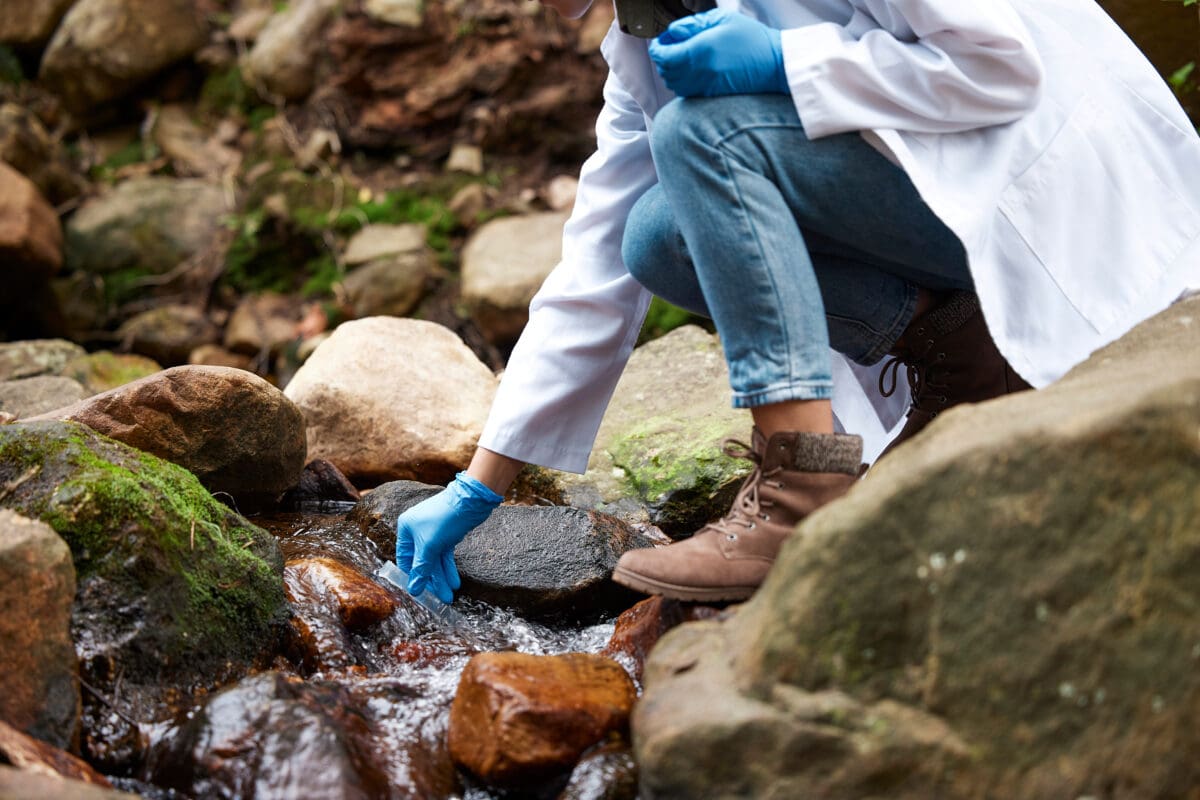
One Health
Master of Science
Earn your online One Health degree and shape
a better world for humans, animals, and the environment.
Our master’s degree in One Health prepares you to tackle complex health challenges by focusing on the interconnectedness of human, animal, and environmental health. You’ll gain a holistic understanding of health issues, emphasizing collaboration across sectors to address pressing global challenges like pandemics, biodiversity loss, and climate change. Unity is a leader in sustainable degrees, and our One Health program is ideal for those interested in creating a more resilient and equitable future through the integration of health disciplines, offering career paths in roles such as epidemiologist, environmental health officer, or policy analyst in the public, private, and nonprofit sectors.
In the MS in One Health program you'll learn to:
- Analyze ethical considerations in One Health practices, assessing the impact on human, animal, and environmental well-being
- Assess health interconnections to develop strategies that simultaneously promote the health of humans, animals, and ecosystems
- Integrate principles from various disciplines to create solutions for complex health challenges within the One Health framework
- Manage interdisciplinary One Health projects, collaborating with diverse entities to address complex health issues
Career Outlook
What can I do with an online master's degree?
Careers for One Health graduates.
Environmental Scientists and Specialists, including health jobs in the U.S., 2022.
Environmental Scientists and Specialists, including health average pay, 2022.
Estimated U.S. job growth for Environmental Scientists and Specialists, including health jobs through 2032.
Environmental Scientists and Specialists, including health jobs in the U.S., 2022.
Environmental Scientists and Specialists, including health average pay, 2022.
Estimated U.S. job growth for Environmental Scientists and Specialists, including health jobs through 2032.
*Source: U.S. Bureau of Labor Statistics/O-Net. Unity Environmental University cannot guarantee employment. Salary data represents averaged earnings for the occupations listed and includes workers at all levels of education and experience.
Examples of online coursework in one health:

Environmental Health and Ecosystems
This course explores the interconnections between environmental factors and health, analyzing how changes impact human and animal well-being. You will assess risks and devise mitigation strategies, covering environmental risk assessment, pollution control, antimicrobial resistance, climate change, and biodiversity conservation through practical applications and case studies.

Animal Health and Well-being
In this course, you'll dive into animal health within the One Health framework, addressing disease identification, prevention, and control, including zoonotic diseases affecting both animals and humans. You will gain insights into the interconnectedness of animal and human health, examining ethical considerations and best practices for promoting the well-being of diverse animal species.

Epidemiology and Zoonotic Disease
This course applies epidemiological principles to the One Health framework, exploring the interaction of human, animal, and environmental factors in disease dynamics. You will develop expertise in designing and conducting interdisciplinary epidemiological studies, analyzing health data across species, and creating strategies for disease surveillance and control. The emphasis is on collaborative approaches to address emerging infectious diseases and chronic health issues.
Degree requirements and courses needed to earn a sustainable master's
The Master's in One Health degree requires 30 credits with a minimum 3.0 GPA. For more requirements, view our full course catalog.
Frequently Asked Questions
-
What is One Health?
One Health is an interdisciplinary approach that recognizes the interconnectedness of human, animal, and environmental health. It emphasizes collaboration among various sectors, including human health, veterinary medicine, environmental science, and other relevant disciplines. The goal of One Health is to achieve optimal health outcomes for people, animals, and ecosystems by addressing health issues at the intersection of these domains.
This approach recognizes that the health of each is closely linked and that a comprehensive understanding and collaborative strategies are essential to prevent and control diseases, promote environmental sustainability, and ensure the well-being of all living organisms. -
What is a Master of Science in One Health?
This MS in One Health program is grounded in the understanding that the interconnectedness of human, animal, and environmental health is vital to create balanced and optimized well-being for all. By treating animal health and public health equitably, the curriculum creates an integrated approach to addressing the complex challenges at the intersection of health and the environment including new challenges posed by antimicrobial resistance, climate change, and biodiversity loss. Students will graduate with the knowledge and skills needed to contribute to the advancement of One Health principles in research, policy, and practice.
-
What is a Master of Science (MS) degree?
The MS degree is a traditional graduate program focused on deepening scientific understanding through research and academic study. Students typically specialize in a particular field of science and learn the research skills related to their discipline.
The MS program is centered around developing a strong foundation in research and scientific inquiry:
- Research Methodology: Students learn how to design and conduct experiments, collect and analyze data, and interpret results within the context of their scientific discipline.
- Critical Thinking: The program emphasizes the ability to think analytically and critically about scientific problems, forming the basis for sound research and decision-making.
- Technical Expertise: Depending on the field of study, students may acquire advanced technical skills in areas such as data collection techniques, fieldwork, GIS mapping, computational modeling, or statistical analysis.
- Academic Writing: The ability to write clearly and effectively is honed, particularly through the process of producing a thesis or research papers suitable for publication.
-
What courses will I take to earn an MS in One Health?
Research Core: 15 credits
- RSCH 510 Research Fundamentals
- MATH 510 Tools and Technologies for Data Analysis
- MATH 525 Quantitative Research Design and Statistics
- MATH 530 Qualitative Research Design and Analysis
- RSCH 610 Research Communication
Major Program Core: 15 credits
- HLTH 510 Introduction to One Health
- ESCI 510 Environmental Health and Ecosystems
- ANIM 525 Animal Health and Well-being
- HLTH 610 Epidemiology and Zoonotic Disease
- HLTH 615 Applied One Health Research and Project Management
For a better look into your program, view our full course catalog. Then apply online for free to get started.
-
How much does it cost to receive a master's in One Health?
Your online education should be affordable and manageable. Thanks to our promise to keep tuition flat through 2030, you won’t be burdened with unexpected increases or fees.
Our team of distance education concierges will work with you through the admissions process to help you plan and pay for your degree. Learn more about the costs here. -
How fast can I finish my online master's in One Health?
The timeframe for completion is up to you! Enroll in 6 credits per term and complete the program within just one year. Alternatively, opt for part-time study by taking one course at a time. Whichever path you choose, we’re here to support your educational journey every step of the way. Contact your concierge or advisor to create your personalized plan.
Why Unity for your master's in sustainability degree
Career Focus – Unity ranks in the top 2% of colleges for social mobility according to CollegeNET. Demand for employees with green skills is growing daily, and the sustainability core in every master’s program at Unity means that you’ll graduate with an environmental consciousness applicable to every career path.
Earn While You Learn – Our asynchronous model is designed to provide flexibility, allowing you to balance your studies with professional and personal commitments.
World Renowned Faculty – Learn from faculty who are working in their field, bringing their professional network and real-world insights into the virtual classroom, fostering valuable connections for your future career.
Applied Learning – You’ll be required to engage your local community and environment while completing your master’s degree, giving you practical, hands-on experience while allowing you to translate theoretical knowledge into real-world solutions.
Personalized Support – You can rely on one-on-one professional advising, career support from your first day, unlimited mental health counseling, and more.











